GPS Tracking: Why Do Companies Use GPS Tracking For Assets?
If you're reading this, like many business owners who spend hours upon hours researching GPS tracking equipment, you are more than likely to have the outlook that GPS tracking is nothing more than a 'location device and theft deterrent'.
It is completely understandable you might think this way, with the general consensus amongst a majority of small to medium-size company owners having the same views.
Yes, a GPS tracker can provide real-time location tracking for assets. It will of course act as a huge deterrent for thieves who may be considering to steal your goods.
Telematic devices are capable of storing over 1000 pieces of valuable data, this can then be extracted and be used to understand how the asset is being utilised. This information can ultimately optimise your business assets, make them more efficient and have a hand in making your business a more profitable one.
Let's understand more about why a business would want GPS tracking.

More Than Deterring Theft
At first glance, a company researching GPS tracking will mainly look into the device as a theft deterrent.
Predominately, a lot of companies will gain significant benefits from location tracking especially on expensive plant and equipment items that they may own or lease.
Along with location tracking, the GPS monitoring of asset utilisation is where we can investigate the hidden running costs and outline possible opportunities within to save on running costs.
Extracting copious amounts of data from a tracker can give insight into information such as kilometres driven, litres consumed per 100km, time spent idling, harsh braking, harsh acceleration, time speeding and commencement of working
This is only the scratching of the surface when it comes to attaining data from GPS tracking.
The great thing about telematics data is that it can help determine if an asset has 'had its day' or has reached its peak usage. This can allow a business to determine whether or not the asset should be retired, sold off and new equipment can make its way into the company.
Managing Staff
One of the vastly and most useful elements of asset tracking that is understated is staff management potential.
An important factor, especially for those companies that let their staff take-home vehicles is ensuring accuracy with clock-on and clock-off times.
An asset tracker can provide a transparent record of when an employee began work and when they ended. Thus, providing a more accurate recording of hours for payroll and ensuring that the correct wages are dispersed to employees.
Another element of an asset tracking device that is a real winner for many companies is knowing who is using which particular asset. This can be handy especially when it comes to determining if an asset is overworked, breaking down frequently, or mistreated.
It can allow for more adequate training and ensure critical feedback is given to the correct employee.
Furthermore within asset tracking, using telematics, there is capability to give employees a real-time notification or alerts, based on their actions of an asset.
This can be extremely helpful in stopping a major issue occuring with the asset.

Solution Focused Approach
Approaching GPS telematics can be quite confusing initially. Determining what tracking requirements your asset requires can really put your mind to work. We thought we would take the stress out of this task and break down what your options may be.
OBDII
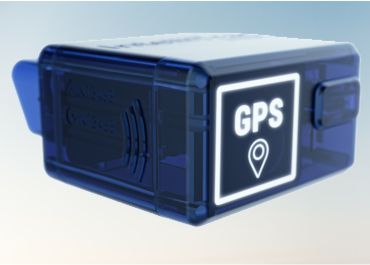
What is an OBDII?
Onboard Diagnostics II (OBD2) is a diagnostic system that is included in every vehicle made after 2007 in Australia & New Zealand. It is used to check the engine and other vehicle systems and communicate all the possible glitches that happen to them.
What's the best use of this device?
OBDII plug & go GPS tracking devices are suitable for companies wanting fast deployment without the cost & delay of installation. This product suits small to medium business wanting economical solutions right through to corporates wanting fast deployment as well as Insurance Telematics for UBI
Edge
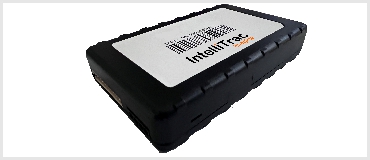
What is the 'Edge'?
The Edge is a basic commercial-grade GPS tracking device for cars, trucks & machinery.
Best use for the Edge?
These are suitable for companies wanting a simple & cost-effective, hardwired professionally installed GPS solution across their fleet of company cars, light commercial vehicles, trucks & machinery.
Eclipse
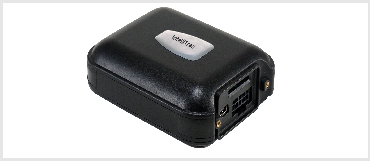
What is the 'Eclipse'?
The Eclipse is suitable for companies wanting a simple & cost-effective hardwired professionally installed solution across their fleet of company cars, light commercial vehicles, trucks & machinery.
Best use of the Eclipse?
The Eclipse provides intermediate GPS tracking features including driver behaviour & internal decision-making algorithms to detect excessive idle, overspeeding, harsh braking & acceleration as well as the ability to interface basic switches & sensors in a reliable & robust commercial product.
Elite
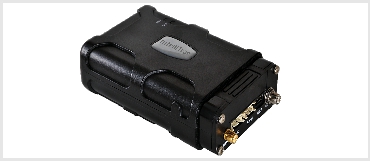
What is the 'Elite'?
The benchmark in GPS Telematics Devices. Whether you are a small business looking at future-proofing your GPS Tracking solution to provide high-end scalable features, or whether your organisation is considering a uniform telematics hardware solution across all fleet & plant.
Best use of the Elite?
The Elite is a completely flexible & scalable telematics hardware platform allowing you to decide the features & functionality required in your organisation.
The IntelliTrac Elite is the Telematics Hardware platform of choice.
Evolve
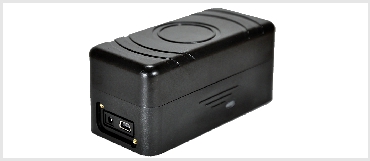
What is the 'Evolve'?
A Self-powered GPS tracking device suitable for companies wanting to track large non powered assets such as Containers & Trailers.
Best use of the evolve?
As mentioned above, it is a great tracking device for non powered assets.





